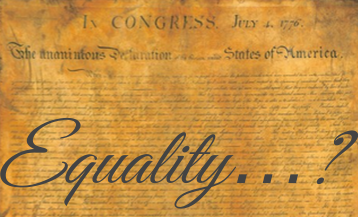"Your Money, Your Vote"
The Third Republican Debate
Of all the areas of our lives that the government touches, which is the one that we as individuals probably feel the most?
The economy. Whether it be at the gas pump, the grocery store, or our highly taxed paycheck, we feel the effects of governmental fiscal policy all the time, every day.
For these reasons I was very interested to watch the third Republican Debate last Wednesday since it was the proclaimed main topic of the event. “Your Money, Your Vote.”
But as policies and ideas are bantered back and forth on a debate stage, it can get very easy to get confused about what is what, especially when the topic of ‘billions’ or ‘trillions’ of dollars comes up. People throw numbers back and forth like a tennis ball, while we’re left sitting at home wondering, “How am I going to make ends meet this month?”
We had ten candidates up on that stage (and four at the earlier debate), ten different tax plans, ten different ideas about how to create, as Carson put it, “America for the people versus America for the government.”
Let me ask you this, how many times have you heard the same issues discussed? The same promises and proposals? Carly Fiorina summed it up nicely,
So what is it going to take?
Let’s say you hire a contractor to build you a house. Blueprints are given to the contractor of exactly what you want. You give them a budget and pay up front. However, once the house is finished in accordance with your agreement and the blueprints, the contractor wants to continue working on the house. He wants to add some rooms, buy furniture, linens and cookware. Pretty soon, he’s debating what color the drapes should be, demanding that you supply the needed money, when all you wanted was him to build the house.
Now maybe he has some fantastic interior decorating skills, but if that’s not his job then he has no business even arguing about it. It’s out of his jurisdiction.
This may seem like an extreme or absurd example, but think about it. On September 17, 1787 “We the People” formed a government.* We wrote a Constitution, very similar to a blueprint. We said, “This is what government can and cannot do.”
At first, it worked more or less as it should. A few kinks had to be worked out but we saw one of the most prosperous periods in the history of the world come from this ‘land of the free’.
But once the ‘house’ was completed, the ‘contractor’ was not satisfied and wanted to keep working on the ‘house’. Medicare, Social Security, welfare, government banks, health insurance, taxpayer funding of private organizations, Medicaid, education standards, housing, the energy industry, food stamps….
And the list goes on. The ‘contractor’ won’t stop building.
Are some of these programs good? Perhaps. But they go beyond the ‘blueprint’. They are what we call unconstitutional. Either change the Constitution or stop.
Now, the biggest problem we see with this is that the ‘contractor’ we call government does not have its own money. It does not produce any money. “We the People”, that’s you and me, are the government’s main source of revenue. Therefore, the more government does, the more it spends. And we foot the bill.
This is the reason tax reform is an issue. When you go beyond the ‘blueprints’ and scrap the plan, you get unintended results, such as atrociously high taxes, more controls and regulations, and overall less freedom.
So what’s it going to take?
Bottom line, we must elect candidates that understand this, that understand the proper role of government, not just what it has done for the last however many years, but the proper, Constitutional role of government (to protect our God-given rights). Then, and only then will we be able to see real change for the better.
We can argue tax policy and whether so-and-so’s tax plan is actually what they say it is, but all that is moot if we don’t have the preliminaries correct. We have to get this straight first.
So as you look at those ten candidates vying for the presidency of your government, ask yourself, “Does this person get it?”
Jonathan Paine
@painefultruth76
painefultruth1776@gmail.com
*(Note: people throw around the phrase ‘the government’ as if it is some separate entity. While this may be the case now, this was not the intention or original design. A government of, by and for the people means it belongs to us. Or at least it’s supposed to.)




Comments
Post a Comment